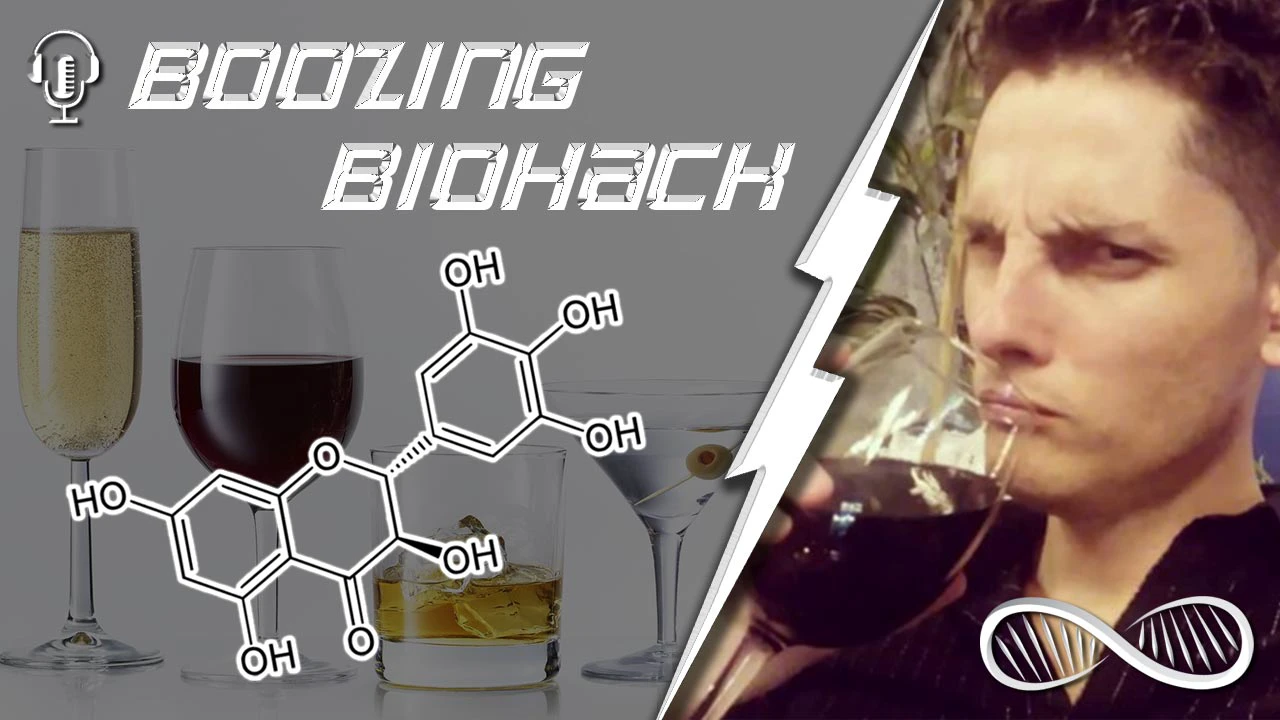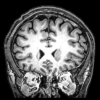Try it. You'll like it.

dihydromyricetin (DHM) as an alcohol intoxication blocker
#121
Posted 26 August 2016 - 05:55 PM
#122
Posted 14 October 2016 - 05:54 PM
Does anyone know exactly how DHM blocks alcohol intoxication? DHM is known to interact with GABA-A receptors, but how exactly does it interact with them, and what's the interaction with ethanol's effect on GABA-A?
Edited by Boardkey, 14 October 2016 - 05:57 PM.
#123
Posted 16 October 2016 - 12:09 AM
GABA receptors are inhibitory receptors, Alcohol binds to GABA-A receptors and prevents activation, resulting in the phenomenon we perceive as drunkeness: lack of coordination, shedding inhibitions, etc.
Dihydromyricetin (DHM) also binds to these receptors, blocking alcohol from binding to them, but unlike alcohol, DHM allows activation, so one remains or becomes sober.
Other effects of alcohol are not necessarily blocked. I suspect it still agonizes dopamine,so one feels good, but the upset stomach that accompanies drinking too, too much, is not prevented. Perhaps this us why users of DHM have been found to drink less rather than more than without DHM.
DHM has other effects: activation of SIRT3 (mitochondrial sirtuin) and it is similarly protective to the liver as is silimarin, acording to Chinese researchers.
DHM depot has a summary of many papers on the sustance, or you can search pubmed.com
#124
Posted 16 October 2016 - 12:30 PM
GABA receptors are inhibitory receptors, Alcohol binds to GABA-A receptors and prevents activation, resulting in the phenomenon we perceive as drunkeness: lack of coordination, shedding inhibitions, etc.
Dihydromyricetin (DHM) also binds to these receptors, blocking alcohol from binding to them, but unlike alcohol, DHM allows activation, so one remains or becomes sober.
Other effects of alcohol are not necessarily blocked. I suspect it still agonizes dopamine,so one feels good, but the upset stomach that accompanies drinking too, too much, is not prevented. Perhaps this us why users of DHM have been found to drink less rather than more than without DHM.
DHM has other effects: activation of SIRT3 (mitochondrial sirtuin) and it is similarly protective to the liver as is silimarin, acording to Chinese researchers.
DHM depot has a summary of many papers on the sustance, or you can search pubmed.com
Man, you don't seem to know what you are talking about. Alcohol (ethanol) is a positive allosteric modulator of GABA-A. It doesn't prevent their activation, it potentiates their function.
Edited by Boardkey, 16 October 2016 - 12:47 PM.
#125
Posted 16 October 2016 - 07:31 PM
get him boardkey!
#126
Posted 16 October 2016 - 08:07 PM
Yes. And I'm not sure where he's getting this bit about how DHM "allows activation." But he's got a point about the mitochondria and dopamine.
DHM competitively inhibited BZ-site [(3)H]flunitrazepam binding (IC(50), 4.36 μM), suggesting DHM interaction with EtOH involves the BZ sites on GABA(A)Rs.
See this figure

which might be wrong about ethanol, but either way it seems DHM is enough to deform the complex and disrupt ethanol binding
Pharmacol Biochem Behav. 1983;18 Suppl 1:15-8.
The interactions of ethanol with the benzodiazepine-GABA receptor-ionophore complex.
Abstract
Ethanol, barbiturates and benzodiazepines have similar pharmacological effects. All of these drugs facilitate the inhibitory transmission mediated by GABA. Drugs that facilitate GABAergic transmission are effective in alleviating ethanol withdrawal symptoms. Acute ethanol administration increases the number of low affinity GABA receptor sites, while, during ethanol withdrawal, the affinity of this site is decreased. This decreased affinity during withdrawal correlated with the audiogenic seizure activity. These results indicate that in vivo ethanol interacts with GABA receptors, and this interaction may be responsible for some of the effects of ethanol and for some symptoms of withdrawal. Ethanol, like pentobarbital, also enhances [3H]diazepam binding to the Lubrol-solubilized membrane fraction in vitro. This effect was dose-related and was blocked by picrotoxinin and other GABA antagonists. Enhancement of [3H]diazepam binding by various alcohols did not correlate with lipid:water partition coefficients. Ethanol also partially inhibited the binding of [3H]-alpha-dihydropicrotoxinin in the Lubrol-solubilized fraction. These results indicate that ethanol, like pentobarbital, may modulate the benzodiazepine binding component of the benzodiazepine-GABA receptor-ionophore complex via the picrotoxinin site. The possible interpretation of these results, in relation to the GABAergic transmission, is discussed.
#127
Posted 16 October 2016 - 11:07 PM
does dihydromyricetin help with alcohol withdrawal though
#128
Posted 17 October 2016 - 12:22 AM
maxwatt says in post #71 that the plant is used for withdrawal and dependence. Also found this blog:
Researchers at the University of California have isolated a flavonoid from the plant Hovenia Dulcis that can counter the effects of alcohol, relieve symptoms of hangover, and is shown to be a likely cure for alcohol withdrawal and dependence (Shen et al., 2012).
The plant Hovenia Dulcis, also known as the oriental raisin tree, has long been used in Chinese herbal medicine for the relieve of hangover symptoms and is listed in the Tang Materia Medica which dates back to 659 A.D. (Shen et al., 2012). Shen et al. have isolated the flavonoid in the Hovenia Dulcis plant that is attributed to the plant’s anti-alcohol effects.
Hovenia Dulcis and Alcoholism
The pot of gold at the end of the rainbow in this study is the fact that DHM seems to lessen the GABA receptor plasticity as a result of frequent heavy drinking (Shen et al., 2012). So taking DHM can effectively shift the GABA baseline level back to normal and reduce alcohol cravings. In fact, Shen et al. (2012) demonstrated some very interesting results with their voluntary alcohol intake experiments. Several groups of rats were given 2 bottles that they may freely drink from. The group with a choice of an alcohol+DHM mixture and water did not show any signs of alcohol dependence. The group that had a choice of alcohol and water begins building an alcohol dependence, with an increase in alcohol consumption after 3-4 weeks. As a side note, those must have been some pretty happy alcoholic rats!
By switching the alcoholic rats to an alcohol+DHM mixture, the alcohol dependence and the amount of alcohol consumed were reversed after a week. Shen et al. (2012) believe that DHM is a very realistic and viable candidate for medications for alcoholism by preventing and lessening the dependence of alcohol.
DHM and the Hovenia Dulcis plant also work great as an anti-intoxication medicine. As an added bonus, they also partly relieve other hang over symptoms. If you want to try the Hovenia Dulcis plant as a hang over cure yourself, a quick google search of Hovenia Dulcis tea will lead you to many brands and online store that sells them.
#129
Posted 17 October 2016 - 12:37 AM
Thanks gamesguru! Yeah, I suspec DHM may prevent alcohol from binding.
This paper (https://www.ncbi.nlm...pubmed/22219299) says DHM inhibits withdrawal signs and alcohol intake in rats:
Dihydromyricetin as a novel anti-alcohol intoxication medication.
- 1Department of Molecular and Medical Pharmacology, David Geffen School of Medicine, University of California, Los Angeles, California 90095, USA.
Alcohol use disorders (AUDs) constitute the most common form of substance abuse. The development of AUDs involves repeated alcohol use leading to tolerance, alcohol withdrawal syndrome, and physical and psychological dependence, with loss of ability to control excessive drinking. Currently there is no effective therapeutic agent for AUDs without major side effects. Dihydromyricetin (DHM; 1 mg/kg, i.p. injection), a flavonoid component of herbal medicines, counteracted acute alcohol (EtOH) intoxication, and also withdrawal signs in rats including tolerance, increased anxiety, and seizure susceptibility; DHM greatly reduced EtOH consumption in an intermittent voluntary EtOH intake paradigm in rats. GABA(A) receptors (GABA(A)Rs) are major targets of acute and chronic EtOH actions on the brain. At the cellular levels, DHM (1 μM) antagonized both acute EtOH-induced potentiation of GABA(A)Rs and EtOH exposure/withdrawal-induced GABA(A)R plasticity, including alterations in responsiveness of extrasynaptic and postsynaptic GABA(A)Rs to acute EtOH and, most importantly, increases in GABA(A)R α4 subunit expression in hippocampus and cultured neurons. DHM anti-alcohol effects on both behavior and CNS neurons were antagonized by flumazenil (10 mg/kg in vivo; 10 μM in vitro), the benzodiazepine (BZ) antagonist. DHM competitively inhibited BZ-site [(3)H]flunitrazepam binding (IC(50), 4.36 μM), suggesting DHM interaction with EtOH involves the BZ sites on GABA(A)Rs. In summary, we determined DHM anti-alcoholic effects on animal models and determined a major molecular target and cellular mechanism of DHM for counteracting alcohol intoxication and dependence. We demonstrated pharmacological properties of DHM consistent with those expected to underlie successful medical treatment of AUDs; therefore DHM is a therapeutic candidate.
Anyway. This is a funny thread, a lot of... not so well-thought out ideas here IMO lol. Maxwatt claimed at one post that naltrexone is a GABA-A antagonist and in another post that DHM acts on GABA-B. That's a LOT of errors.
Normalizing: I agree with you that DHM's inhibitory effect on alcohol intoxication is not a very useful property. I do think it's curious though. Alcohol acts on many receptors. Taking GABA-A out of the equation still leaves other receptors doing something. I find this curious.
I personally hoped DHM would be a GABA-A inhibitor similar to thujone, because I'd be interested in seeing how GABA-A inhibition affects a sober person. Obviously, I'd stay below the seizure threshold in terms of doses. But now, DHM's effect on GABA-A in the absence of ethanol... is unknown?
Edited by Boardkey, 17 October 2016 - 12:38 AM.
#130
Posted 17 October 2016 - 03:00 AM
if dihydromyricetin behaves same way as naltrexone then its not that useful if you ask me. deterring drinking alcohol is one thing, altering biochemistry to not drink by choice is something else
#131
Posted 17 October 2016 - 02:20 PM
if dihydromyricetin behaves same way as naltrexone then its not that useful if you ask me. deterring drinking alcohol is one thing, altering biochemistry to not drink by choice is something else
after taking 750 mgs of DHM twice a day for 2 weeks , my perspective was that ,i had no reason to drink, the need for altered states of consciousness that had been with me for 17 years was entirely absent,
after two months of taking it , the idea of drinking, smoking or taking drugs was repugnant to me.
infact i even began question my use of Dhm and other forms of medication .
the best moment for me was attending a music festival sober and no one offering me drugs.
when you have taken drugs(like weed) for a long period of time you instinctively sniff them out no matter where you are .
my subconscious was no longer looking for them, maybe even avoiding them .
Edited by wanderlust, 17 October 2016 - 02:21 PM.
#132
Posted 19 October 2016 - 01:59 AM
https://www.ncbi.nlm...cles/PMC165791/
The role of GABAA receptors in mediating the effects of alcohol in the central nervous system
A more complete discussion of the effect of ethanol on GABA-A receptors and the dopamine system can be found in the above-referenced paper,
#133
Posted 19 October 2016 - 02:28 AM
well, im still finding it amusing people who never dealt with alcohol thinking they know how it works by posting random abstracts.
conclusion; alcohol is the most complex drug of abuse in the human world and to this day, human's knowledge of how to deal and threat it is limited to a monkey level AND YET, you guys are mostly focused on finding ways to extend your lifespan, yet ancient puzzles that should have been solved by now to show some intelligence are left ignored because they confuse you
Edited by normalizing, 19 October 2016 - 02:29 AM.
#134
Posted 19 October 2016 - 03:58 AM
Normalizing posted:
well, im still finding it amusing people who never dealt with alcohol thinking they know how it works by posting random abstracts.
conclusion; alcohol is the most complex drug of abuse in the human world and to this day, human's knowledge of how to deal and threat it is limited to a monkey level AND YET, you guys are mostly focused on finding ways to extend your lifespan, yet ancient puzzles that should have been solved by now to show some intelligence are left ignored because they confuse you
Normalizing: if you had followed the link you'd have found more than a random abstract, but a complete paper summarizing what is known about the action of ethanol on the central nervous system. The use of negative allosteric modulators as a possible treatment for alcoholism is discussed, but notes that one promising substance is anxiogenic and proconvulsant. DHM has elsewhere been shown to modulate GABA-A, and the herbs containing this substance have been used in East Asia as a treatent for alcoholism for a millennia. Wanderlust gives a subjective account that seems to bear out this use of the herb. (Hovenia dulcis in Korea and Ampelopsis grossedentata in China.) I suggest you read the paper, it is considerably beyond a monkey level of understanding.
Edited by maxwatt, 20 October 2016 - 03:26 AM.
#135
Posted 20 October 2016 - 03:35 AM
...snip...
Anyway. This is a funny thread, a lot of... not so well-thought out ideas here IMO lol. Maxwatt claimed at one post that naltrexone is a GABA-A antagonist and in another post that DHM acts on GABA-B. That's a LOT of errors.
...
I have never mentioned naltrexonem, nor claim DHM acted on GABA-B.
#136
Posted 28 February 2020 - 09:45 PM
Dihydromyrecitin likely deserves a dedicated thread that is decontextualized from a specific use in alcohol intoxication prevention. But given this is the only prior active thread on it I'll post my experience here.
Method: 10-20mgs (estimated) sober, taken in the late evening. Repeated 48 hours apart.
Result first night: very deep sleep and vivid dreams. The dreams seemed to access deep memory.
Result next day:
a. Resensitization to coffee. I havn't had a coffee buzz in fifteen to twenty years prior to this.
b. Upper lung irritation gone (felt like a wet drip) that was present during the prior day.
Result second night:
very deep sleep, but it didn't come until after I took an anti inflammatory agent early in the morning. As opposed to the first night, wherein the deep sleep came early lasted throughout the night (I may have taken an anti inflammatory agent earlier on the first day, but wasn't disciplined enough in this experiment to record it).
However, after I did drop off into a deeper sleep state (on the second night) my dreams were again eerily vivid and with a quality of depth: matching my experience on the first night. Their content also accessed deep memory, as on the first night. Postive hormonal effects were experienced during sleep (a marker of extra deep sleep in m experience).
Result the second day: again, an enhahnced responce to coffee. It being able to convey a buzz that lasted much of the day (as I kept consuming coffee to chase it).
In the coming days / weeks, I will titrate up the dose and experiment with taking it at different times of the day.
Research:
Most Dihydromyrecitin research seems to come out of China, which isn't great.
Ignoring that factor in the evidence, below is a brief summary of some of the actions of Dihydromyrecitin. Experimental models vary (mouse models are common) and this list is not likely to be exhaustive:
*If I get time, I'll come back at a later date and cite the research. Barring that, google scholar searches should quickly produce what I'm referring to below:
1. AMPK/Sirt1 activation, which in the Dihydromyrecitin research has shown to have positive downstream effects on:
a. Alzheimer’s disease
b. Endurance capacity / mitochandrial density
c. Lifespan
2. Sirt3 activation, which in the Dihydromyrecitin research has shown to have positive downstream effects on:
a. Mitochondrial homeostasis
b. Osteoarthritis
c. Nonalcoholic fatty liver disease
d. Cardiac Ischemia/Reperfusion
c. Obesity
3. Prevention of acetaminophen (APAP) induced liver injury via inhibition of hepatocyte death, promotion of p53-related regeneration, and regulation of lipid homeostatic imbalance and APAP transformation.
4. Alleviation of carbon tetrachloride-induced acute liver injury via a JNK-dependent mechanism.
5. Amelioration of foam cell formation via LXRα-ABCA1/ABCG1-dependent cholesterol efflux in macrophages
5. Protection against alzheimer's disease and related behavioral defecits, via reduction ofAβ peptides, restoration of gephyrin levels, and restoration of GABAergic transmission and functional synapses.
6. Amelioration of spatial learning and memory impairments induced by acute sleep deprivation, possibly underlying due to DHM's ability to reduce oxidative stress and restore synaptic plasticity.
Edited by golgi1, 28 February 2020 - 10:42 PM.
#137
Posted 28 February 2020 - 11:29 PM
Dihydromyrecitin research continued:
7. Delays the onset of hyperglycemia and ameliorates insulin resistance without excessive weight gain in Zucker diabetic fatty rats, via inhibition of PPARγ phosphorylation.
"DHM preserved pancreatic β-cell mass, elevated adiponectin and improved lipid profile more vigorously than rosiglitazone. Notably, DHM decreased body weight gain and fat accumulation in both liver and adipose tissue, while rosiglitazone caused a significant increase of body weight and fat accumulation. DHM inhibited phosphorylation of PPARγ at serine 273 more efficiently than rosiglitazone".
8. Protects against Diabetic Cardiomyopathy in Streptozotocin-Induced Diabetic Mice
9. Enhances the Chemo Sensitivity of Nedaplatin via Regulation of the p53/Bcl-2 Pathway in Hepatocellular Carcinoma Cells
10. Induces apoptosis and inhibits proliferation in hepatocellular carcinoma cells
11. Promotes autophagy and apoptosis through ROS-STAT3 signaling in head and neck squamous cell carcinoma
12. Inhibits the Growth and Metastasis of Prostate Cancer In Vitro and in Mice
13. Exerts a rapid antidepressant-like effect in association with enhancement of BDNF expression and inhibition of neuroinflammation.
14. Improves Hypobaric Hypoxia Induced Memory Impairment via Modulation of SIRT3 Signaling
15. Protects neurons in an MPTP-induced model of Parkinson’s disease by suppressing glycogen synthase kinase-3 beta activity
16. Suppresses inflammatory responses in vitro and in vivo through inhibition of IKKβ activity in macrophages
Edited by golgi1, 28 February 2020 - 11:31 PM.
#138
Posted 29 February 2020 - 10:00 AM
#139
Posted 13 February 2022 - 10:33 AM
I experienced NO DISCERNIBLE HANGOVER drinking on this stuff.
I delved into Pubmed on DHM on put together a huge article/podcast on it. I break down everything you need to know about Dihydromyricetin and why it belongs in the cabinet of every self-respecting boozing biohacker.

WATCH: EXORCISE the Evils of Alcohol with Dihydromyricetin (DHM) - Boozing Biohackers NEED this!
#140
Posted 13 February 2022 - 11:02 AM
I will give this a try in the near future. I have not had a drink for a couple of days, but I will have a drink some time in the future. It will be interesting to see if this can stop the alcohol rebound.
#141
Posted 28 February 2022 - 01:56 AM
I added dihydromyricetin to my stack yesterday, after reading about half a dozen NIH-posted research papers on it. Yes, most of the research used to be based in China, but western scientists are also becoming interested in this flavonoid, which is also called "ampelopsin", as it can be extracted from the plant Ampelopsis grossedentata.
I'm taking 400mg twice daily. Like Wanderlust, I too have begun having vivid dreams.
I don't drink a lot of alcohol, but I'm over 60 years old and I weigh too much. DHM has been shown to be effective at improving the lipid profile and reducing atherosclerosis. It reduces insulin resistance, and both prevents and helps repair liver and kidney damage due to alcohol, high-fat diets, and other causes like acetaminophen poisoning. It's anti-oxidant, anti-inflammatory, and anti-carcinogenic. It's also a powerful neurotropic that protects against Alzheimer's disease and dementia, enhances focus and clarity of thought, and decreases anxiety.
It's no longer difficult to find in the US. There are several different brands and strengths offered on Amazon.
In research studies, it has been found that it not only helps with recovery from binge drinking, but also reduces the urge to drink. Rats offered free-choice water and alcohol normally become alcoholics who drink more and more of the ethanol-spiked water. In the study, rats that were given DHM daily drank much less ethanol than the control rats. They weren't interested in the alcohol.
Although most of the research on dihydromyricetin is being done in China, a few similar studies in the US and elsewhere have confirmed the Chinese results. I hope that more reasearch on it is done in western universities. This is a VERY interesting supplement that deserves much to be the focus of much more research, particularly into its synergistic effects when combined with chemotherapy to combat cancer.
Edited by Paravani, 28 February 2022 - 01:58 AM.
#142
Posted 28 February 2022 - 06:15 AM
Its interesting. I am 61 and have lost a lot of weight recently (mainly between August 2000 and May 2001 when I lost about 33% of my body mass). I think Melatonin helped to do this.
I have not yet tried DHM when not drinking, but I will at some stage.
#143
Posted 02 March 2022 - 05:34 AM
Its interesting. I am 61 and have lost a lot of weight recently (mainly between August 2000 and May 2001 when I lost about 33% of my body mass). I think Melatonin helped to do this.
I have not yet tried DHM when not drinking, but I will at some stage.
Wow! 33% is a LOT to lose at any starting weight!
Were you trying to lose weight? If so, congratulations on your success!
But if you were not trying to lose weight, you should see your doctor ASAP.
#144
Posted 02 March 2022 - 06:30 AM
It was intentional to lose weight.
My daughter took some comparison photos I put on twitter.
https://twitter.com/...381767866441728
Edited by johnhemming, 02 March 2022 - 06:31 AM.
Also tagged with one or more of these keywords: dhm, gaba, alcohol
3 user(s) are reading this topic
0 members, 3 guests, 0 anonymous users



























































